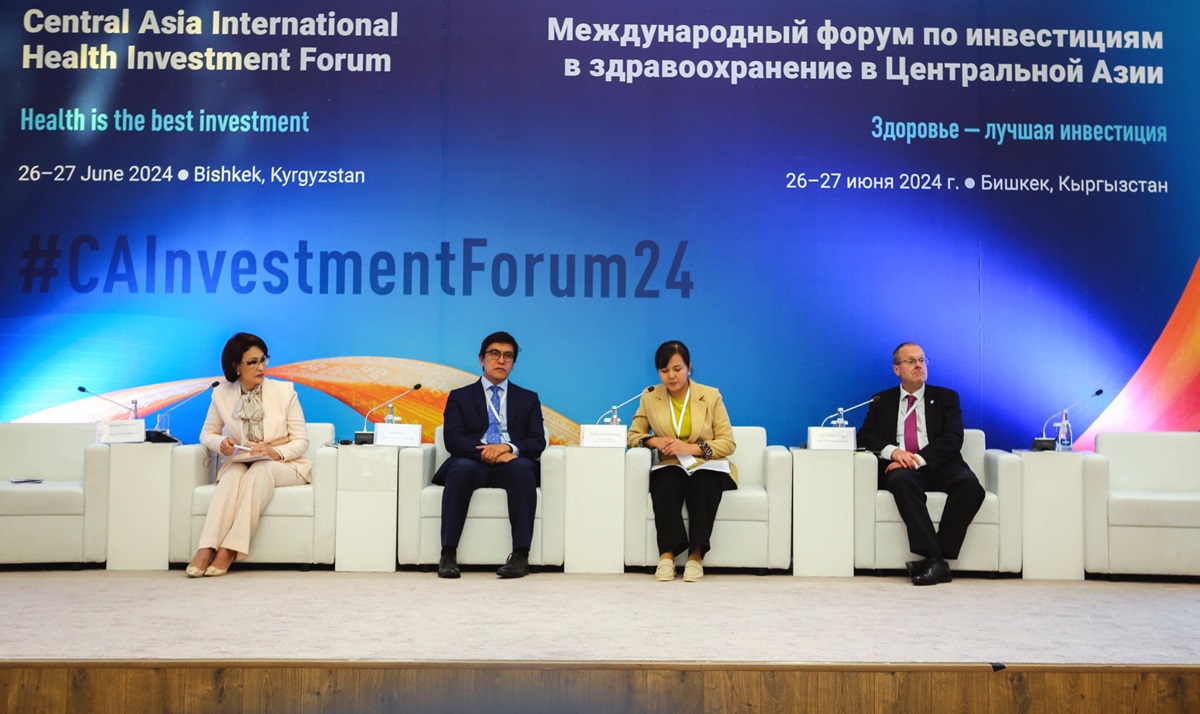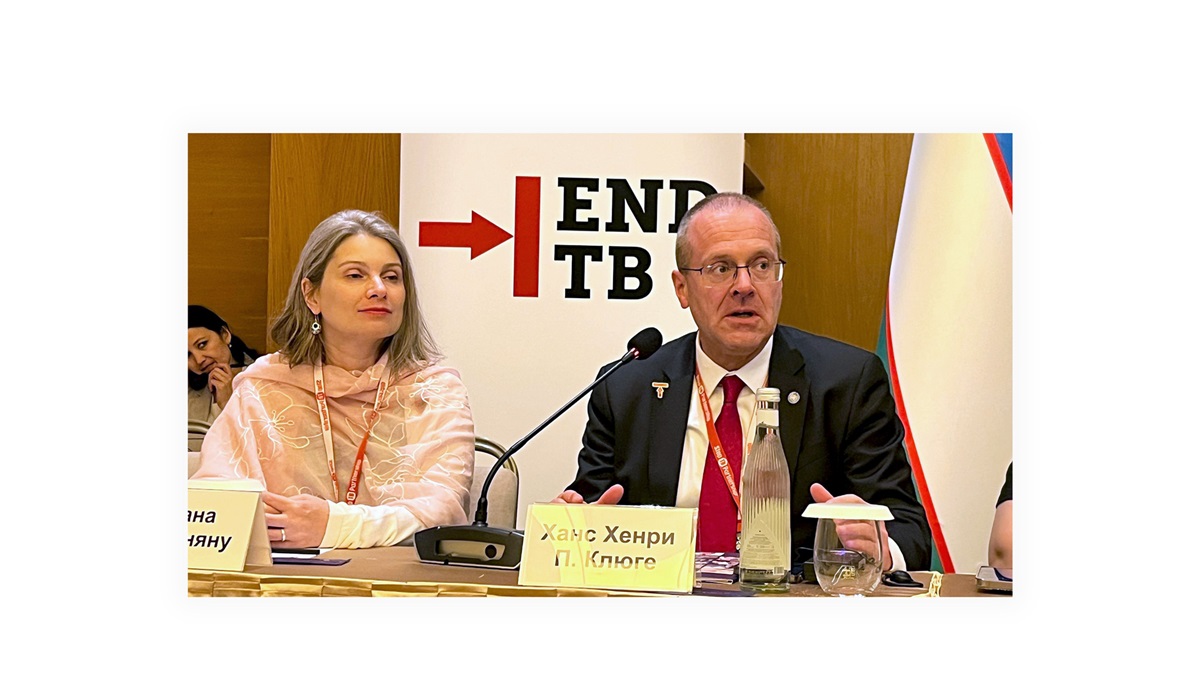No images? Click here
Economic growth and health go hand in hand: landmark Central Asia International Health Investment Forum spotlights how health investments can catalyse regional transformation
26-06-2024
Under the motto “Health is the best investment”, the first-ever Central Asia International Health Investment Forum is bringing together international, regional and national stakeholders to highlight the transformative potential of health investments for sustainable development across the 5 WHO Member States of central Asia. Hosted under the patronage of the President of Kyrgyzstan and organized by WHO/Europe and the Ministry of Health of Kyrgyzstan, this 2-day event aims to showcase best practices and innovative health investment strategies that align with the Sustainable Development Goals (SDGs). Examples include public–private partnerships and digital health tools to improve efficiency.
City leadership for age-friendly communities in the post-pandemic era: five lessons for building health emergency resilience from 16 European cities
The COVID-19 pandemic hit older people hardest. This policy brief is intended for planners, policy-makers and politicians. During the pandemic, cities provided leadership and innovative programmes to meet the four key challenges of survival, equity, creating conditions for people to adapt and thrive, and ensuring older people have a voice which is listened to and acted upon.
UKRAINE EMERGENCY
Health financing in Ukraine: reform, resilience and recovery - Synthesis report
21-06-2024
Ukraine emergency situation reports
COVID-19
WHO and Switzerland strengthen partnership for global BioHub System
13-06-2024
Increasing Recognition, Research and Rehabilitation for Post COVID-19 Condition (long COVID)
WHO remains committed to learning more about long COVID and to finding ways to improve the medium- and long-term outcomes for people affected by it.
Partnering with the European Union to support deployment of COVID-19 vaccines and vaccination
The EU and WHO/Europe together provide critical assistance to Member States of the WHO European Region to ensure local readiness for safe and effective vaccination campaigns against COVID-19

27-06-2024
WHO/Europe recently gathered country representatives and experts to set a course for the reduction of childhood obesity in southern European countries: Croatia, Cyprus, Greece, Italy, Malta, Portugal, San Marino, Slovenia, Spain and Türkiye. The WHO Office on Quality of Care and Patient Safety in Athens, Greece (the Athens Office) organized the first round of subregional policy dialogues on obesity prevention on 18–19 June in collaboration with WHO/Europe’s Special Initiative on Noncommunicable Diseases and Innovation (SNI) and the Ministry of Health of Greece. There, country representatives and leading health experts discussed evidence-based policies that can tackle the problem of overweight and obesity – conditions that can lead to many deadly noncommunicable diseases, from diabetes to cancer and cardiovascular diseases.
Working together to identify the hazards that could impact UEFA EURO 2024
25-06-2024
Shorter TB treatment regimen shown to be safe and effective in operational research led by WHO
19-06-2024
Keep cool in the heat and enjoy a sporting summer!
16-06-2024
Just four industries cause 2.7 million deaths in the European Region every year
12-06-2024
Call for step-change in health behaviours
11-06-2024
WHO issues updated guidance for strengthening health information systems
11-06-2024

24-06-2024
Friends, we are a long way from ending TB in the European Region, but there is hope on the horizon. New evidence shows how a reduced 9-month treatment plan for multidrug-resistant TB [MDR-TB] has a treatment success rate of 83%, well above the current average success rate for the European Region of 57%. In the past, treatment for MDR-TB could take as long as 3 years. But with this new regimen, there are no injectables and far fewer pills to take, which means patients can be cared for in their communities, by their families and loved ones, and in some cases even keep working. Uzbekistan has made great progress on TB thanks to the leadership of the Ministry of Health. Over the past decade, the country has enhanced its diagnosis, treatment and monitoring processes for TB. Success rates have improved from 84% in 2012 to 89% in 2021. Read more

20-06-2024
“With these on, I can relax and escape from here without physically leaving,” Yoran says as he puts on a virtual reality (VR) headset provided by his medical team. Yoran is one of over 100 000 yearly patients at the Radboud University Medical Center (Radboudumc) in Nijmegen, Kingdom of the Netherlands, and a teenager who enjoys what most teenagers do. It just so happens that he needs medical assistance to digest food. During long-term stays at the hospital, his VR headset offers a choice of activities, ranging from games with physical movement to mindfulness and meditation practices. “My favourite game is the one where they put a ball in 1 of 3 cups, shuffle them, and I guess where the ball is,” he says, still engrossed in the game.
The overwhelming case for ending stigma and discrimination in mental health
26-06-2024
Turkmenistan takes bold action to implement a "One Health" approach across the country
19-06-2024
Learning from Malta’s example for refugee and migrant health
19-06-2024
WHO’s Venice Office at 20: Promoting health equity for people and planet
05-06-2024
Small countries pledge action to improve cancer care and build climate-resilient health systems
05-06-2024

EVENTS
WHO/Europe's Access to Novel Medicines Platform consensus-building meeting
2 – 3 July 2024, Copenhagen, Denmark
Summer school: Systems thinking and innovation for the prevention of noncommunicable diseases and a healthy ageing population in the WHO European Region
16 – 19 July 2024, Nice, France
15th conference of the European network for the promotion of health-enhancing physical activity (HEPA Europe)
19 – 21 August 2024, Dublin, Ireland
74th session of the WHO Regional Committee for Europe
29–31 October 2024, Copenhagen, Denmark








